Do you want to find the best, the largest and the biggest van for vanlife? Let’s review all the options.
In this article, we take a look at the best vans for vanlife to help you select the one that’s best suited to your lifestyle. 🚐
List of the best van life vans
1. MERCEDES SPRINTER
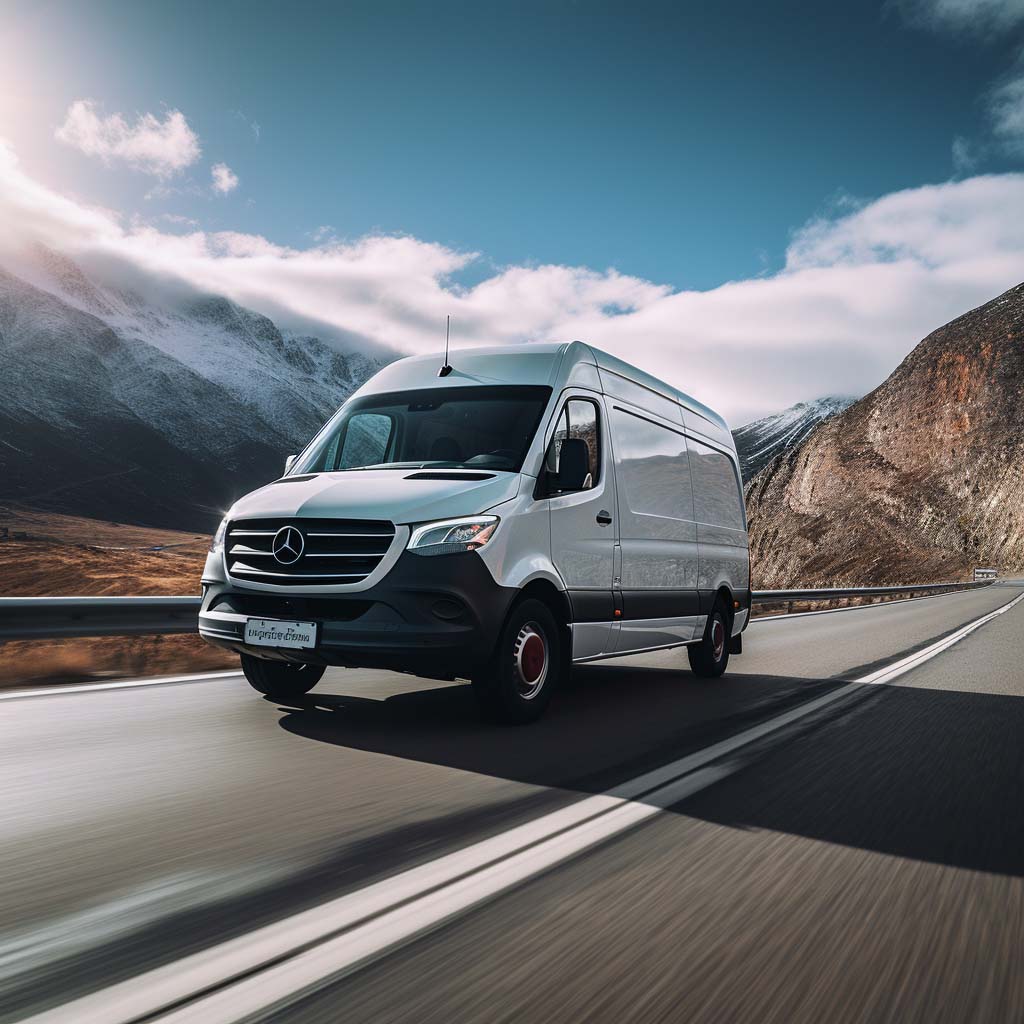
- Price range: $43,000 – $65,000
- Drive train: RWD, AWD
- Roof options: Low, medium and high
- Average gas mileage: 16-24 mpg
- Key features: Spacious, reliable, standing headroom
Mercedes Sprinter High Roof Extended is the longest and biggest van for van life. The overall length of the 170 WB EXT is 290 inches.
This is why Sprinter is so popular among van lifers. It’s spacious (even more so than the biggest Ford Transit), reliable, robust, and built to a high standard. And for many people, it’s the best van to live in, especially when equipped with Sprinter van interior kits.
Mercedes introduced the first-gen Sprinter in the US back in 2001. It was initially sold under the Freightliner badge, which is part of Daimler Trucks North America. Since then, this panel van has slowly but surely won the hearts of countless Americans, thanks to its reliability and great exterior design. Van lifers especially love the fact that it’s tall enough to stand in to cook and get dressed.
The 2024 Sprinter comes with either a standard-output 170-hp diesel or a high-output 211-hp diesel. Older models feature gas engines, too. The fuel efficiency is decent, no matter what option you choose.
Checkout this 2023 Mercedes Sprinter 2.0L Diesel POV On & Off-Road Review
The Mercedes Sprinter comes with a 144in, 170in, and 170in extended wheelbase, so you can prioritize standing headroom over length if you like. You might prefer to have a shorter van that nearly fits in standard parking spots, while being able to stand up inside it to cook and get dressed.
The payload of the Sprinter is pretty impressive – it can handle up to 7,500 pounds with a diesel engine and 5,000 pounds with a gas engine. This makes it ideal for people who like to travel with lots of heavy adventure gear, such as bikes and surfboards, or who want to add multiple batteries to their power system and store onside the Sprinter wheel well cabinets (under the Sprinter bed system).
Mercedes Sprinter safety.
Mercedes Sprinter is a real champ in the world of commercial vans, and safety is a big deal for it just like versatility and reliability. It’s got some cool features like ABS, automatic emergency braking (AEB), adaptive cruise control, and lane-keeping assist, all aimed at keeping accidents at bay and making sure everyone inside and the cargo stays safe.

According to Euro NCAP, the Sprinter scored:
- 11.8 out of 30 points for AEB Car-to-Car
- 3.4 out of 10 points for AEB Pedestrian
- 4.4 out of 10 points for AEB Cyclist
- 2.5 out of 20 points for Lane Support Systems
- 15 out of 15 points for Speed Assist Systems
- 15 out of 15 points for Occupant Status Monitoring.
Mercedes-Benz doesn’t mess around when it comes to building tough vehicles, and the Sprinter is no exception. With reinforced frames, crumple zones, and smart airbag placement, they’ve got you covered in case of a crash. Plus, there’s Electronic Stability Control (ESC) onboard to help you stay steady even in tricky situations. And let’s not forget the handy rearview camera – perfect for squeezing into tight spots and avoiding any surprise obstacles or pedestrians.
Mercedes-Benz has put the Sprinter through the paces to make sure it meets all the safety standards set by folks like the National Highway Traffic Safety Administration (NHTSA) and Euro NCAP. These safety features make the Sprinter an excellent choice for Sprinter van conversion kits, providing a secure foundation for your future Class B motorhome.
The biggest drawback of a Sprinter? The purchase cost.
Even though the Sprinter is quite expensive to purchase, it holds its value pretty well. In fact, a brand-new Sprinter will typically only depreciate by 6% after a year and 11% after two years. So if you’re planning to resell it after two to three years, you’ll likely make much of your money back.
| Years old | Depreciation |
|---|---|
| 1 | 6% |
| 2 | 11% |
| 3 | 13% |
| 4 | 27% |
| 5 | 28% |
Bear in mind that these numbers are estimates and can vary based on the condition of the vehicle and the mileage.
Another disadvantage of the Sprinter is that you will likely need to take it to a Mercedes dealership if it breaks down on the road. This can be pretty inconvenient if you travel to remote locations.
The basic limited warranty offered by Mercedes-Benz covers three years or 36,000 miles – whichever comes first – and doesn’t include regular maintenance and wear.
Pros:
- Excellent build quality (one of the most reliable vans for vanlife)
- Multiple roof heights and lengths (up to 290”)
- Lots of interior space
- Standing headroom
- Good resale valueImpressive safety features
- Enough space for a toilet
- There are Sprinter van conversion kits you can buy
- You can buy a Sprinter van bed
- There are many Sprinter van cabinets for sale.https://van2b.com/sprinter-van-conversion-kits/
Cons:
- It can cost more compared to other setups.
- Some models can make your van heavier, which could use more fuel.
- It might take some time to learn how to switch between bed and seat.
- Not all campervan folding beds fit every van, so make sure it’s right for yours.
- Some setups could limit how much storage space you have.
2. FORD TRANSIT
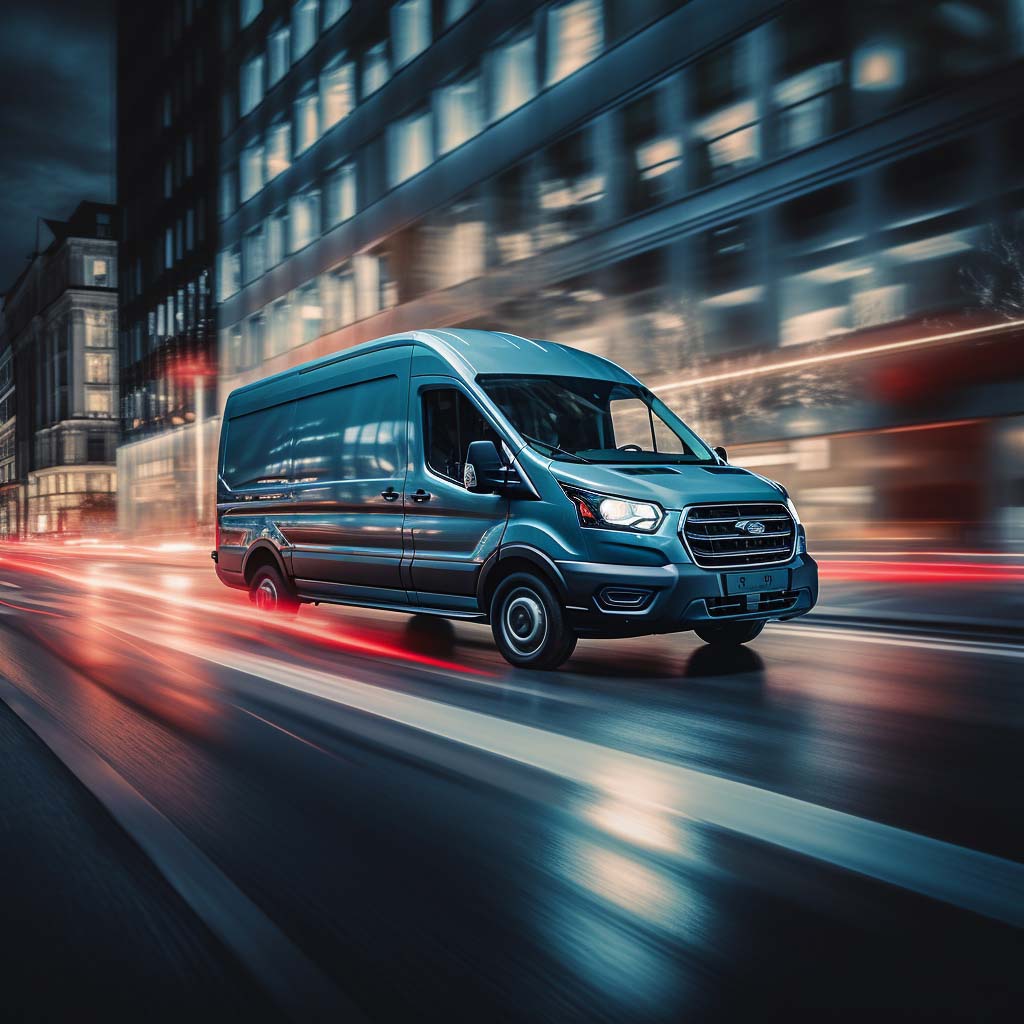
- Price range: $38,000 – $56,000
- Drive train: RWD, AWD
- Roof options: Low, medium and high
- Average gas mileage: 14-20 mpg
- Key features: Versatile, economical to maintain, large cargo area
The Ford Transit is an excellent option for those who are on a smaller budget. It’s not quite as big as a Sprinter, but it features a strong engine and it’s extremely dependable. It likely won’t let you down while you’re on the road, as long as you carry out standard maintenance regularly. If you’re super tall, the high roof model offers slightly higher interior headroom than a Sprinter.
Driving a Ford Transit makes for a comfortable ride and maintaining it is pretty economical, which is why we believe it’s one of the best vans to live in available in the USA.
The Ford Transit comes with either a diesel or gas engine and can be purchased with some great safety features. The base engine is a naturally-aspirated 275 hp 3.5L V6 engine. However, you can also opt for a 310 hp 3.5L V-6 engine. The Transit can haul up to 7,500 pounds, just like a diesel Sprinter.
Ford Transit depreciation.
Depreciation for a new Ford Transit works slightly differently than that of a Sprinter. During the first three years after purchase, the Transit loses more value than the Sprinter. However, in the fourth and fifth year, it holds it better. If you think this is the right van for you, you will save some cash if you buy a second-hand one.
| Years old | Depreciation |
|---|---|
| 1 | 7.5% |
| 2 | 11.5% |
| 3 | 16% |
| 4 | 17% |
| 5 | 21% |
Remember that these numbers are estimates and can change based on the condition of the vehicle and the mileage.
Ford’s factory coverage is available for three years, or 36,000 miles, of bumper-to-bumper coverage and five years, or 60,000 miles, of powertrain coverage. You can find more options, such as the diesel engine coverage, on the manufacturer’s website.
Pros:
- A wide range of models
- Excellent cargo space
- Low maintenance costs
- Comfortable ride
- Strong and reliable engine
- High payload
- Enough space for a bathroom
- You can buy Ford Transit camper conversion kit for sale
- There are Ford Transit beds
- You can buy Ford Transit cabinets.
Cons:
- Less fuel-efficient than some competitors.
3. DODGE RAM PROMASTER
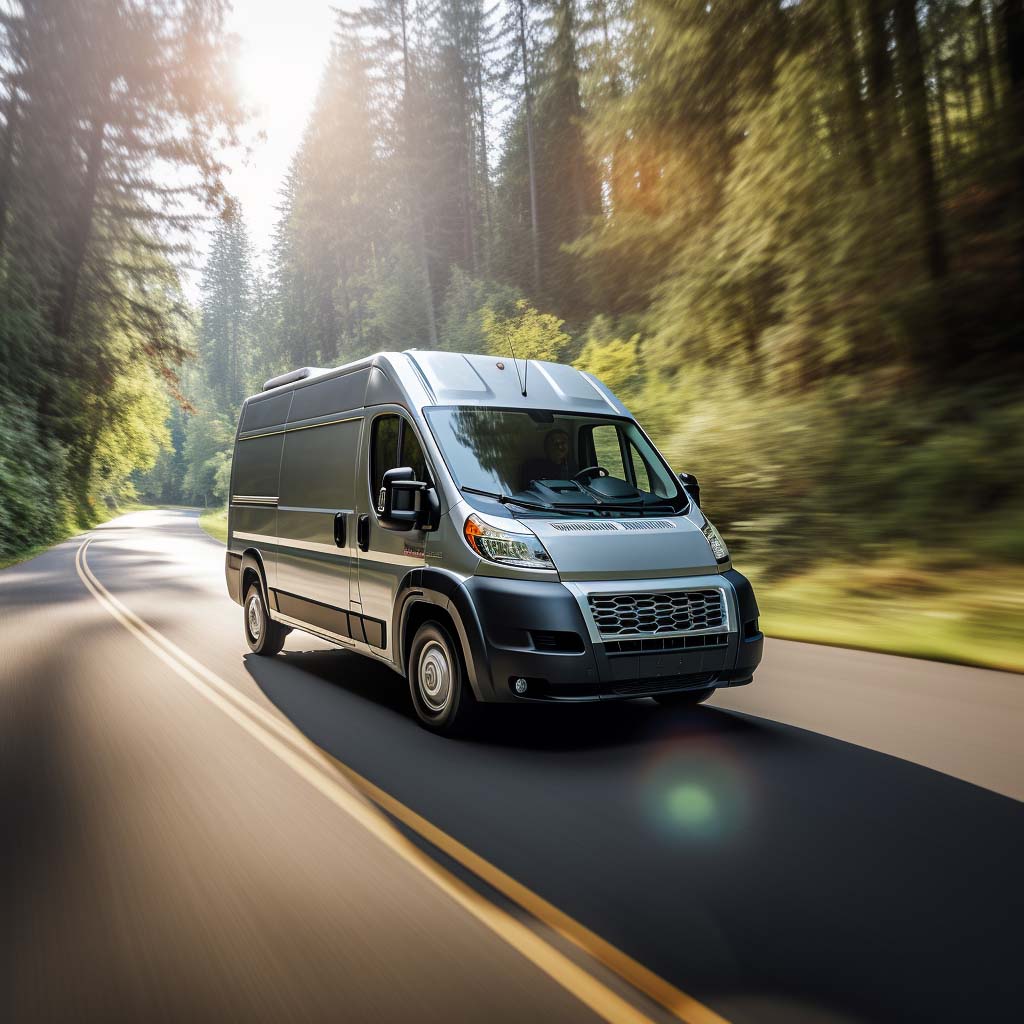
Price range: $32,000 – $48,000
Drive train: FWD, 2WD
Roof options: Low and high
Average gas mileage: 18-21 mpg
Key features: Easy to drive, spacious interior, square cargo space
Ram Promaster Super High Roof has the largest interior height and width.
The Dodge Ram Promaster rivals the Mercedes Sprinter and the Ford Transit as one of the best vans for camper conversions, thanks to its wider body. A 6ft tall person can sleep sideways in the Ram Promaster, which means there’s more space to build a galley, a bathroom, and cabinets. The cargo space is also more “boxy”, so installing furniture is straightforward.
The Ram Promaster is easy to drive with an excellent turning radius, which helps you maneuver efficiently in tighter spaces. Maintenance is cost-effective; however, according to reviewers, the steering system is loose and numb, so the ride quality isn’t very smooth.
All Promaster vans come with a 276 hp 3.6L V-6 engine that is less powerful than that of a Sprinter or Transit. The maximum towing capacity is also slightly lower at 6,910 pounds. If you don’t need the extra speed and payload, this van is cheaper to buy.
Checkout this Ram Promaster review.
Ram Promaster depreciation.
In terms of depreciation, the Ram Promaster rivals the Sprinter. It depreciates similarly in the first two years of ownership. It loses more value in years three and four, but it holds 7.5% more in year five.
| Years old | Depreciation |
|---|---|
| 1 | 6% |
| 2 | 11% |
| 3 | 18% |
| 4 | 19.5% |
| 5 | 20.5% |
Keep in mind that these numbers are estimates and can vary based on the condition of the vehicle and the mileage.
The standard warranty options are the same available for the Ford Transit: three years, or 36,000 miles, of bumper-to-bumper coverage and five years, or 60,000 miles, of powertrain coverage.
Pros:
- Wide cargo area
- Excellent turning radius
- Cost-effective maintenance
- Comfortable and ergonomic cab
- Enough space for a bathroom
- Holds its value well
- There are Ram Promaster camper conversion kits for sale
- You can buy Ram Promaster bed
- There are many Promaster cabinets for sale
Cons:
- Fewer engine options
- Less powerful than the Sprinter and Transit
- The steering system is loose and numb.
4. MERCEDES METRIS
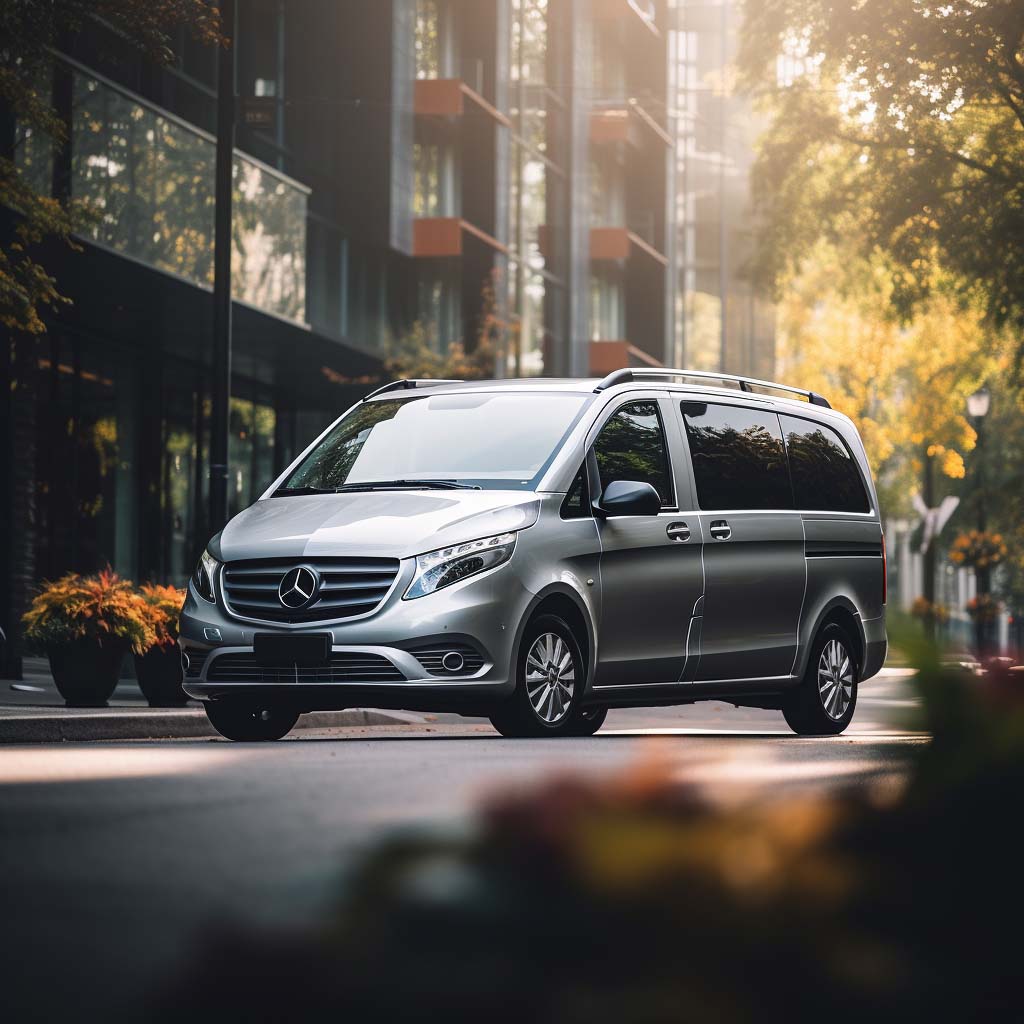
Price range: $35,000 – $42,000
Drive train: 2WD, RWD
Roof options: Low
Average gas mileage: 19-23 mpg
Key features: Compact, powerful engine, high payload
If you’re looking for a smaller vehicle with a high payload and a powerful engine, take a look at the Mercedes Metris. Its size makes it nimble and easy to drive even in the city.
Pros:
- Compact
- Suitable for city driving and easy to maneuver
- Solid build quality.
Cons:
- Limited cargo space
- No standing headroom
- Expensive for its size
- Requires premium fuel.
5. NISSAN NV 200
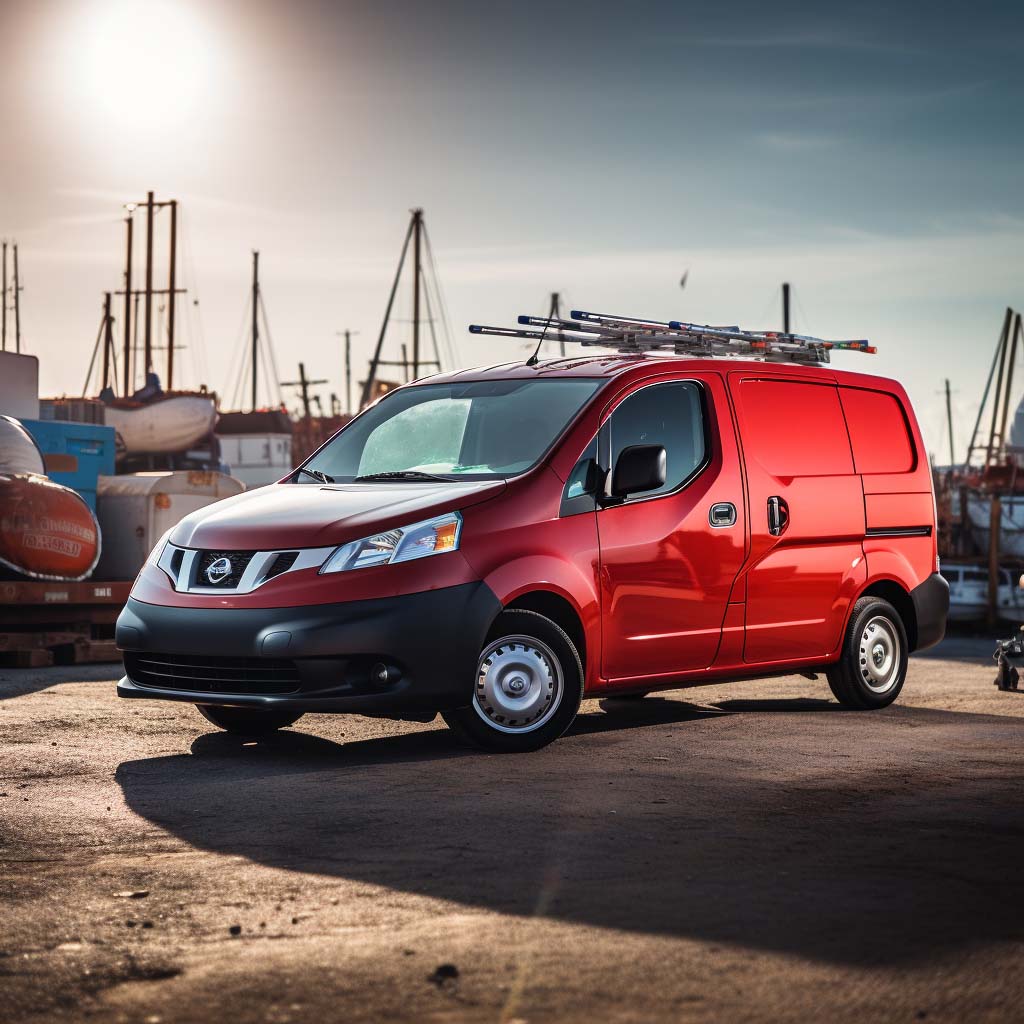
- Price range: $23,000 – $26,000
- Drive train: FWD
- Roof options: Low
- Average gas mileage: 24-26 mpg on the highway
- Key features: Compact, affordable, efficient
The Nissan NV 200 is a compact and budget-friendly van offering excellent fuel efficiency and easy maneuverability. The cargo space is bigger than that of vans of a similar size. However, the engine is not very powerful, so it can’t haul a lot of weight.
Pros:
- Affordable
- Excellent fuel efficiency
- Easy maneuverability
- Great for city driving.
Cons:
- Limited cargo space
- No standing headroom.
6. FORD E-SERIES
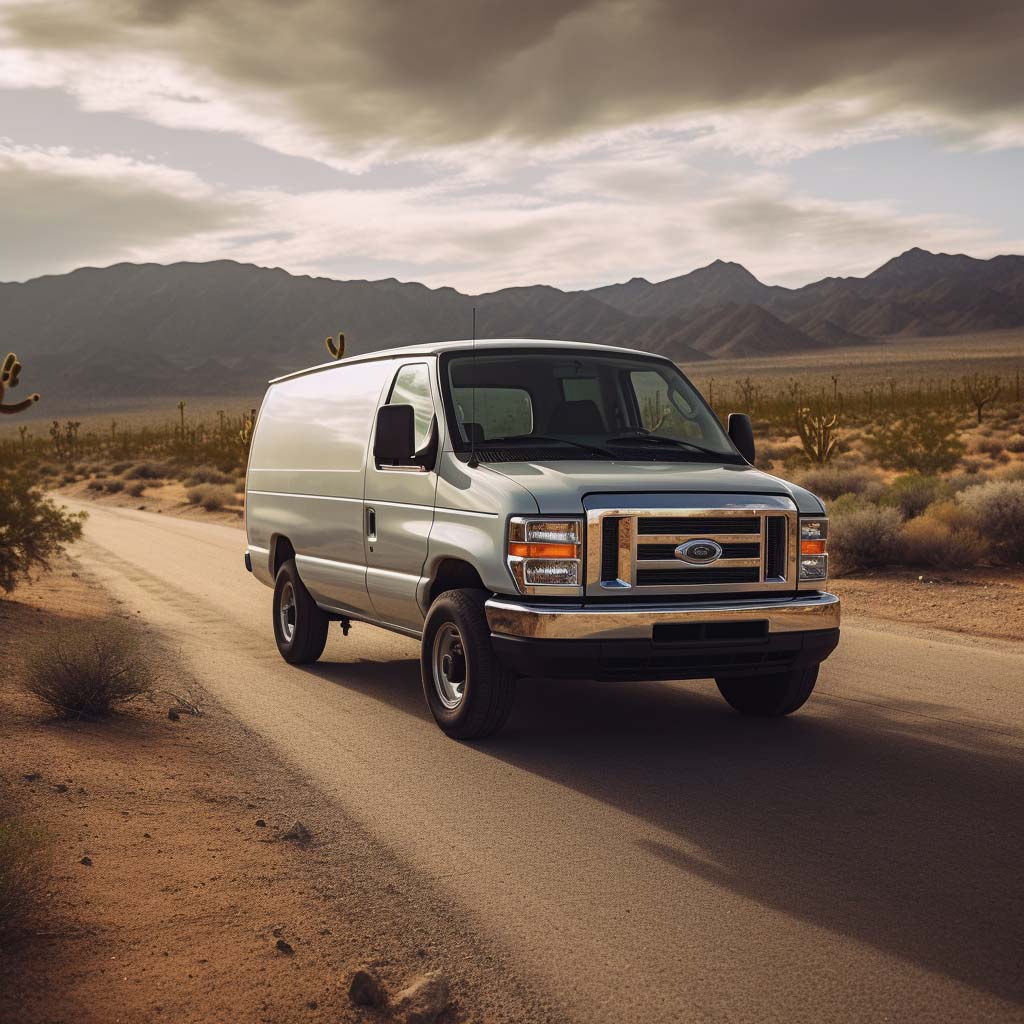
- Price Range: $5,000 – $20,000
- Drive train: 2WD, RWD
- Roof options: Low
- Average gas mileage: 13-16 mpg
- Key features: Spacious, stealthy, reliable
The Ford E-series is one of the stealthiest vans that’s widely available in the US. They have been used by plumbers, electricians, and construction workers for decades, so they easily go unnoticed. Plus, the older models are very cheap.
Pros:
- Affordable
- Classic design
- Very stealthy
- Reliable.
Cons:
- Limited cargo space
- No standing headroom.
7. GMC SAVANA

- Price range: $32,000 – $44,000
- Drive train: 2WD
- Roof options: Low
- Average gas mileage: 11-16 mpg
- Key features: Classic design, reliable, stealthy
The GMC Savana also offers a classic design that is great for stealthy camping and is known for its durability and reliability. The extended versions provide much-needed extra cargo space. However, the Savana has lower fuel efficiency and fewer tech features, compared to more modern vans. By the way, it’s essentially the same vehicle as the Chevy Express.
Pros:
- Classic design
- Stealthy body
- Spacious interior in extended versions
- Durable.
Pros:
- No standing headroom
- Limited tech features.
8. FORD TRANSIT CONNECT
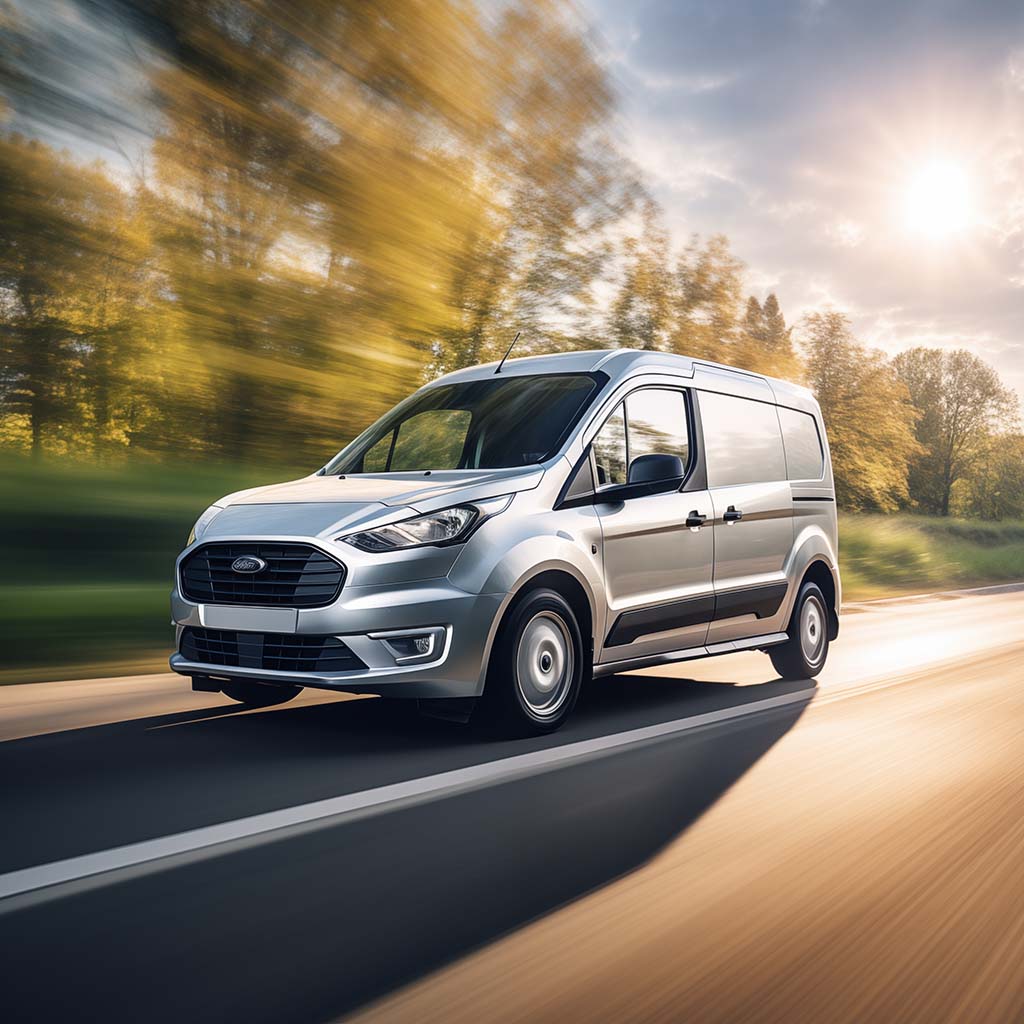
- Price range: $24,000 – $32,000
- Drive train: 2WD
- Roof options: Low
- Average gas mileage: 24-29 mpg
- Key features: Compact, economical, decent payload
The Ford Transit Connect is a compact and low-cost option ideal for van lifers who need to nip in and out of cities often. It excels in fuel efficiency and easy maneuverability. However, its compact size limits cargo space and standing headroom.
Pros:
- Budget-friendly
- Excellent fuel efficiency
- Easy maneuverability
- Powerful engine
- Decent payload
- Great for city driving.
Pros:
- Limited cargo space
- No standing headroom.
9. SKOOLIES

- Key features: Roomy, boxy interior
Skoolies are old-school buses many van lifers convert into cozy homes on wheels. They come in various sizes, with plenty of room for customization. Availability and prices vary widely. Skoolies are perfect for full-time van lifers who spend most of their time boondocking.
You may be interested to see this video. Amazing 6-month project to transform this 1991 bus into a luxury tiny home.
Pros:
- Lots of interior space
- Boxy interior – easy to convert
- Unique and eye-catching design
- Enough room for a family
- Fits a bathroom.
Pros:
- Requires extensive conversion work
- More space means a costlier conversion
- Not stealthy
- Not suitable for city driving.
10. BOX TRUCKS
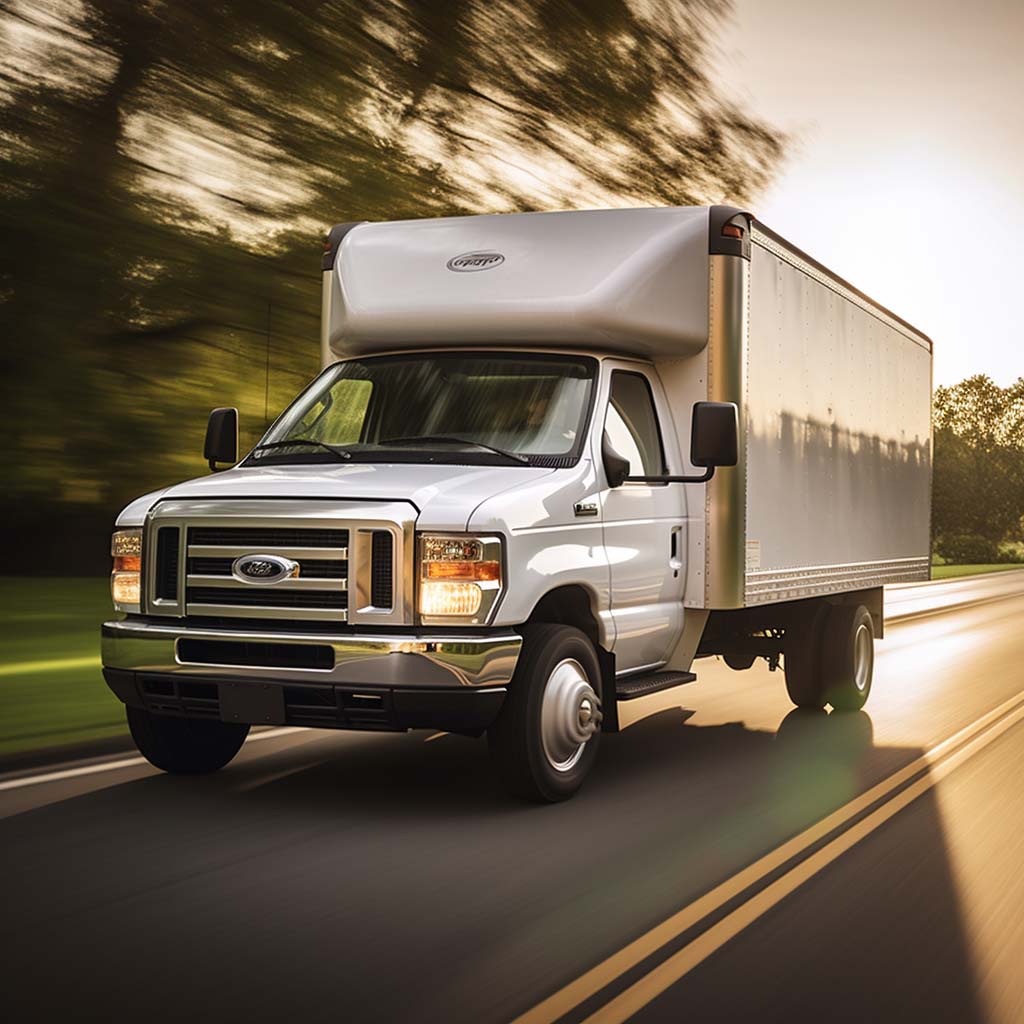
- Key features: Spacious, square interior walls
Box trucks are spacious and easy-to-convert vehicles, thanks to their interior square walls. Prices, sizes, and availability change a lot based on the age and size of the vehicle. These trucks are perfect for campers who want to design their ideal home on wheels from scratch.
Pros:
- Lots of interior space
- Boxy interior – easy to convert
- Unique and eye-catching design
- Enough room for a family
- Fits a bathroom.
Pros:
- Requires extensive conversion work
- More space means a costlier conversion
- Not stealthy
- Not suitable for city driving.
HOW TO CHOOSE A VAN FOR LIVING THE VAN LIFE
The best van for van life is the one that allows you to go on the adventures you dream of.
There are many factors to bear in mind when choosing the right vehicle to turn into your home on wheels. These are all personal; you need to make a decision based on your unique needs and preferences.
Think about:
- Standing headroom: do you need to be able to stand up inside or can you put up with sitting down all the time?
- Bed size: how tall are you? How wide does your bed need to be?
- Use: how often will you use the van? Is it going to become your permanent home or will you take breaks every few weeks or months?
- Who’s coming: traveling solo, with a partner, with children or with a dog call for different setups. Make sure there’s space for everyone in the vehicle you choose.
- Exterior features: are you going to be spending the night in campgrounds and in the wilderness? Or will you often need to stop to sleep near a town? How stealthy do you need to be?
- Engine requirements: do you want to carry lots of heavy gear with you? How fast do you want to go? What’s your monthly fuel budget?
- Off-road capabilities: do you plan to go off-road often?
- Roof size: do you need to fit lots of solar panels for off-grid living on the roof?
- Budget: how much are you willing to spend on the vehicle?
It’s important you take the time to assess each factor, so you can buy the vehicle that suits your lifestyle best.
CONVERTING A VAN INTO A CAMPER
Once you’ve chosen the right vehicle, it’s time to convert it. You can opt for a DIY campervan conversion, a custom build, or a van conversion kit. A conversion kit is the best of both worlds; it allows you to buy a professionally-built camper, while saving money by completing the installation DIY.
At Van2B, we offer bed, kitchen and cabinet units for the Mercedes Sprinter, Ford Transi and the Ram Promaster. We believe these are the best vans to convert into campers, because they are spacious, reliable, and comfortable. Most importantly, they provide standing headroom.
,Here’s a side-by-side comparison of the three vehicles
| Van Model | Wheelbase | Overall Length | Cargo Volume | Interior Standing Height | Drive Train | Price Range |
|---|---|---|---|---|---|---|
| Mercedes Sprinter | LR 144” / HR 144” / 170” / 170” extended | 233.5” / 233.5” / 274.3” / 290” | 319 / 374.3 / 488.1 / 532.6 cu ft | 67.7” / 79.1” / 79.1” / 79.1” | RWD, AWD | $43,000-$65,000 |
| Ford Transit | MR 148” / HR 148” / HR 148” | 235.5” / 263.9” / 235.5” | 352.1 / 487.2 / 404.3 cu ft | 72” / 81.5” / 81.5” | RWD, AWD | $38,000-$56,000 |
| Ram Promaster | HR 136” / HR 159” / HR 159” extended | 213.2” / 236.2” / 250.6” | 352.9 / 420 / 463 cu ft | 76” / 76” / 76” | FWD, 2WD | $32,000-$48,000 |
Van2B van conversion kits are made in the USA using premium materials. Each unit has been designed and built to provide comfort, sturdiness, and functionality. We’re based in California but deliver for free to the Lower 48. Check out our van conversion kits.


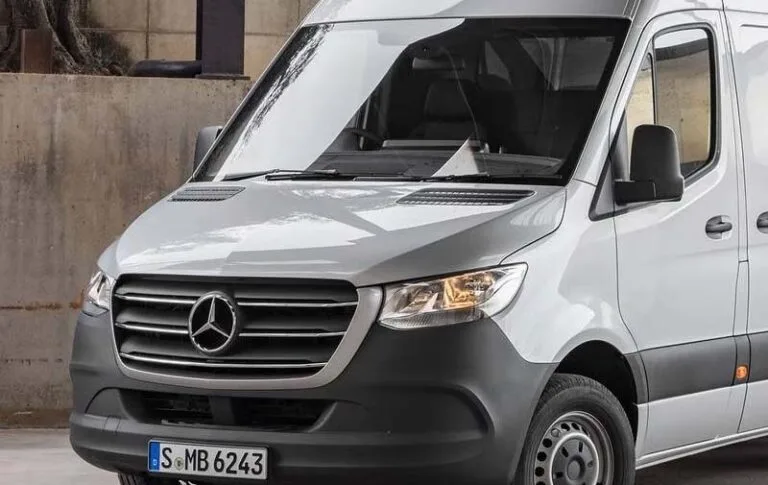
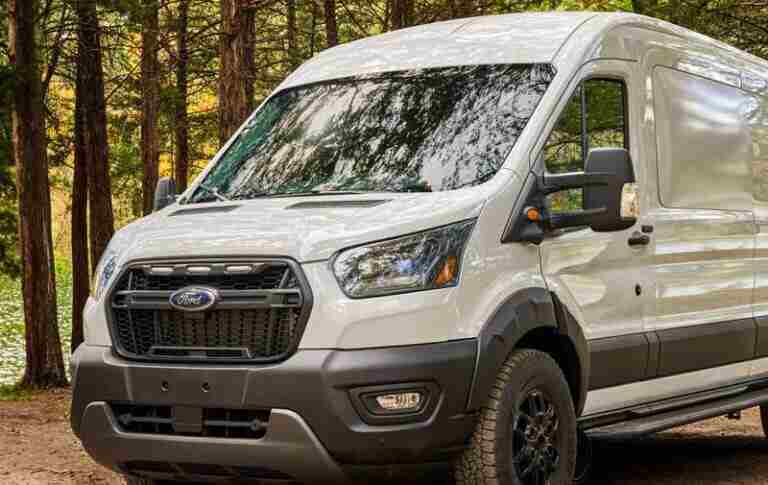
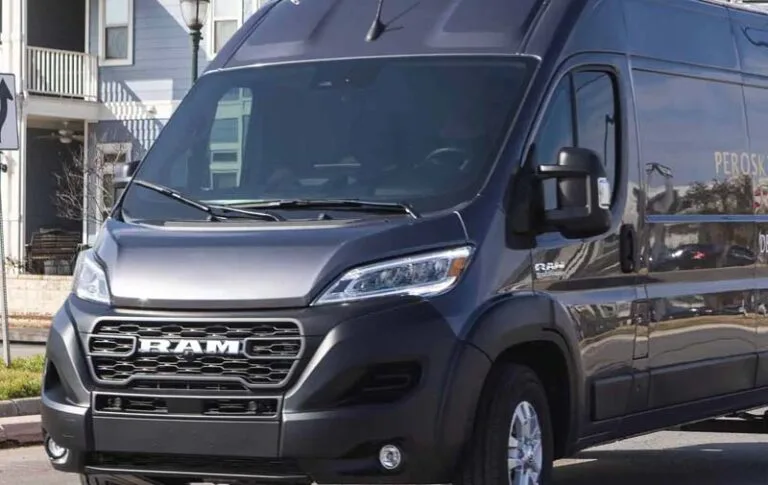
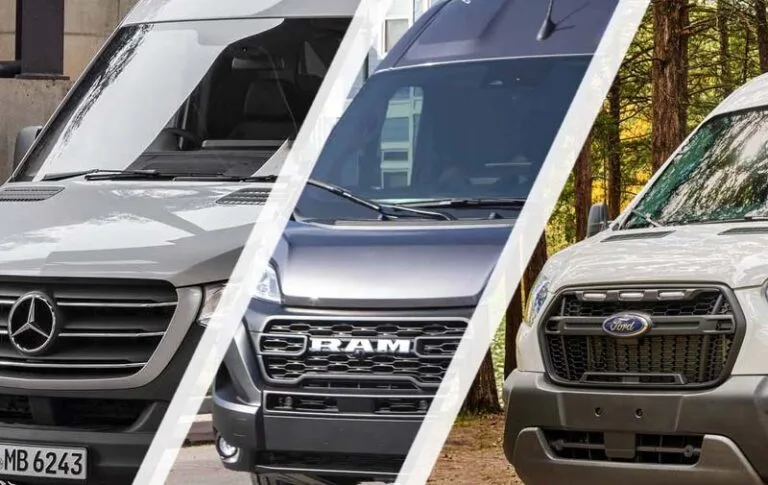
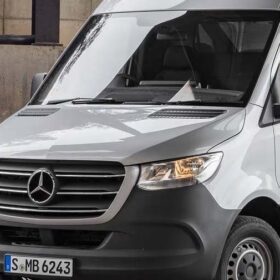
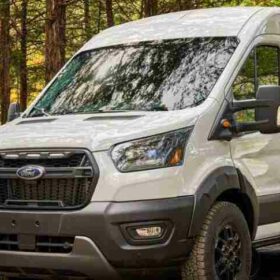
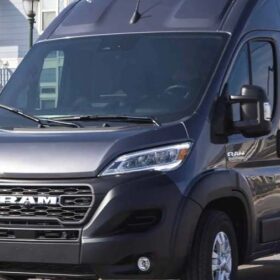
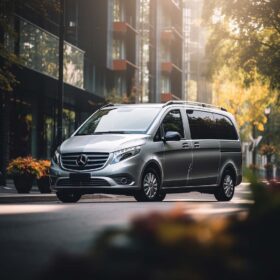
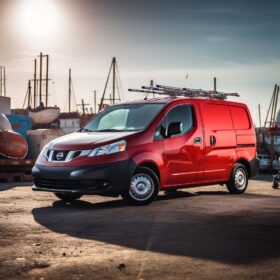
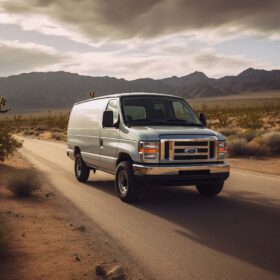

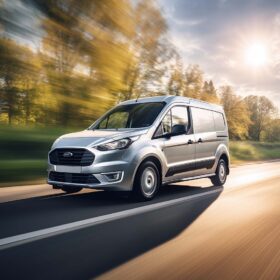
Our products
Beds
Mercedes Sprinter Van Murphy Bed
Beds
Ford Transit Van Murphy Bed
Beds
Ram Promaster Murphy Bed
Cabinets
Mercedes Sprinter Van Wheel Well Cabinets
Camper Van Cabinets
Ford Transit Van Wheel Well Cabinets
Cabinets
Ram Promaster Wheel Well Cabinets
Cabinets
Mercedes Sprinter Van Galley Cabinets
Camper Van Cabinets
Ford Transit Galley Cabinets
Posts you may like
Van flooring: The complete guide
Jan
How to build a DIY camper van in 1 week
Feb
Do Not Buy Vancubic Until You Read This Article: The Pros and Cons Unveiled
Jul
Van Flares Guide: What They Are, Why You Need Them, and How to Choose the Right Ones
May
Generative AI Envisions Ferrari Camper Vans
Jun
16 Van Folding Bed Q&A for Camper Van DIYers
Jun
The Future Design of Mercedes Sprinter: An AI Perspective
Jul
How to put a bed in a Sprinter van
Feb